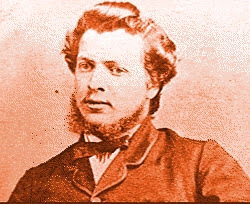We do not have the proposals to view, obviously and we have to rely on how the media presents the information ... but either I am missing something or my interpretation of Economic Stimulus is different....
Where is the money to establish the development of Aboriginal corporations that can build infrastructure and capacity to hire the skilled work force and do the types of economic stimulation that will have us making money instead of begging for hand outs? Why are we not trying to be the corporations, contractors, housing developers, road builders? If we developed large Aboriginal corporations and were available to be the contractors on the infrastructure infusion of tax dollars - we would earn the profits we need to have our own social programs.
Yes we need housing, education, skills development ... The government has invested millions of dollars in these issues in the past and we still need sewers, clean water, housing, health care and many of those basic needs in our communities. Imagine though if we were the Aboriginal Corporation with billions of dollars a year in profit, hiring the skilled and/or educated Aboriginal workforce - we may find our grand children or great grandchildren won't have to be dependent on social programming in future generations - just a thought.
Native leaders talk cash over dinner with PM, premiers
OTTAWA - Talk about a hefty dinner tab.
The Canadian Press
Canada's five aboriginal leaders met with the prime minister and premiers Thursday night over Alberta sirloin and a $22-a-bottle wine selection. Also on the menu: calls for federal-budget cash for native housing, job training and a range of building projects totalling more than $4.4 billion over the next two years.
The Harper government is set to deliver a big-spending budget Jan. 27 with enough economic accelerants to drive the deficit up to $40 billion.
Aboriginal leaders want a substantial share to lift sometimes dismal living and education standards across Canada. They emerged from the two-hour dinner citing hopeful signs that Prime Minister Stephen Harper has had a change of heart when it comes to native issues.
"He talked about the apology and what (it) meant to many Canadians, including himself," said Phil Fontaine, head of the national Assembly of First Nations.
He was referring to a moving apology Harper delivered last June 11 for generations of racist policy in once-mandatory native residential schools.
Fontaine described a warm, generous tone in Harper that suggests the events of last spring added up to "a special moment in time for the country. And it can be seen as a staging point for a number of important transformative changes that have to take place ... to ensure that we can reclaim our rightful place in Canada - this, our homeland.
"I'm leaving here this evening quite hopeful that there will be fairness in the budget" that could lead to real change for aboriginal people, he said.
It won't come cheap.
Fontaine is calling for $3 billion for long neglected housing, education and skills training on reserves. Mary Simon, head of the political group representing Canada's Inuit, wants $1 billion. The Metis National Council has asked for $400 million.
The Native Women's Association of Canada and the Congress of Aboriginal Peoples representing off-reserve residents, want millions of dollars more.
All five national native groups have stressed the need for focused skills training and various construction projects that create jobs fast.
Fontaine is also calling for another $1 billion in repayable loans for aboriginal business ventures in partnership with the private sector.
He described his plan as "practical and achievable."
It would be a mistake, he said, to relegate aboriginal concerns to the status of "afterthought" as political leaders wrestle with the current economic crisis.
"In the good times, when this country was realizing billions of dollars in surplus, we didn't fare as well as the rest of the country," Fontaine said.
In fact, successive federal budgets delivered by the Harper government have included relatively little new money for native needs. Signals from the highest circles of power suggest that might change as an administration once allergic to deficits now openly talks of overspending by up to $40 billion.
"This is where the numbers seem to be right now," said a senior government official, on condition of anonymity.
"The deficit may be up to $40 billion due to the stimulus package."
Indian Affairs Minister Chuck Strahl has said native housing, new schools and skills training are targets for an aboriginal job-creation package to be included in the budget.
He wouldn't put a dollar figure on the package after Thursday's meeting, but has said he's sure "there's going to be money specifically set aside for aboriginal projects."
Saskatchewan Premier Brad Wall leads the province with one of the biggest aboriginal populations in the country.
"Well, there are a lot of asks right now," he said of soaring requests for federal help across virtually all economic sectors.
That said, "aboriginal people in this country have a very strong case to make about infrastructure needs on reserve.
"We in Saskatchewan have been saying we need additional investment in terms of job skills, skills training for First Nations people. They're underrepresented in our economy."
Manitoba Premier Gary Doer agreed.
"I would argue that's not just a social investment, that's an economic investment. When we look at the growing demographics of aboriginal people, when we look down the road as we come through the challenges of the economy, we're going to need more skilled and trained people.
"'We've got to get the high-school graduation rate up. We've got to do that together."
The issue of federal-provincial duties when it comes to growing aboriginal demands raised some thorny questions, however.
Signals from the Harper government that Ottawa expects provinces to pitch in for such projects had some premiers talking jurisdiction.
"I think there are clear constitutional responsibilities and we ought to be respectful of those," said Ontario Premier Dalton McGuinty.
"But ... I believe there's going to be a strong consensus that all Canadians ought to benefit from this stimulus package.
"When it comes to pressing need, compounded by this global economic crisis, I'm not sure there are any groups of Canadians that find themselves in greater need than our aboriginal communities."
Friday, January 16, 2009
Aboriginal Economic Stimulus - Looks like Social Programs
Posted by
MetisMama
at
7:09 AM
![]()
![]()
Subscribe to:
Post Comments (Atom)





3 comments:
"If we developed large Aboriginal corporations and were available to be the contractors on the infrastructure infusion of tax dollars - we would earn the profits we need to have our own social programs."
Exactly the thinking we as Aboriginals need. But then again, our leaders have the Oliver Twist porrige bowl syndrom and I doubt that will ever end.
Why is the government encouraging Aboriginal leaders to consume alcohol? This sounds like the ways of the past to me.
"Why is the government encouraging Aboriginal leaders to consume alcohol?"
Yea especially $22 a bottle wine, cheap if you ask me. )))))) Now some of that $300 per bottle ice wine from ON would have been more like it. )))))
Post a Comment